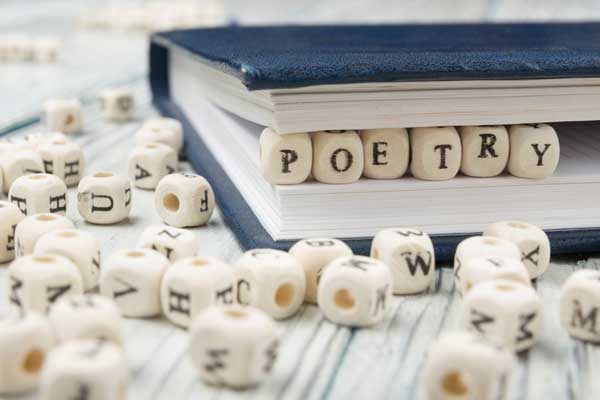An expert is someone who has mastered their craft through a process of study and practice. Poets are no different. It takes years to become an expert poet.
An important part of studying poetry is analysis. Examining the form, content, and syntax of a poem helps us develop a better understanding and deeper appreciation — not just for a single work of poetry but for poetry in general.
There are plenty of means and reasons for analyzing poetry: we can isolate and examine various elements of the poem, and we can figure out how the poem achieves its effects. Through poetry analysis our comprehension increases; we may gain appreciation for a poem; and ultimately we gain deeper insight into poetry as an art form and a tool for self-expression. We learn what works and what doesn’t, and why. Poetry analysis helps us become better poets.
Poetry Analysis Guide
Study and analysis require that we spend time with a poem, exploring its nuances and actively trying to learn from the experience of studying it. Here are some guidelines you can use during poetry analysis:
- Narrator and Audience: Identify the narrator. To whom is the narrator speaking?
- Setting: When and where does the poem take place? Which season, time of day, year, and at what event or location?
- Purpose: Does this poem have a goal? What is it?
- Content: What is the poem about?
- Core theme: What is the central theme or message the poem is trying to communicate?
- Syntax (the arrangement of words) and word choice: How does the selection and arrangement of words affect the poem and the reader? What kinds of choices did the poet make, and why?
- Imagery: Note the imagery (sensory details) in the poem. Which senses are engaged, and how?
- Literary Devices: List all literary devices you can identify in the poem (metaphor, simile, etc.).
- Tone: Is the poem lighthearted or serious? Ominous or optimistic? Casual or formal?
- Musicality: Use scansion to measure the poem’s metrical patterns. What observations can you make about its rhythm or rhyme scheme? Is there any repetition of sounds (alliteration, consonance, or assonance)?
- Form and structure: Does the poem follow a formal form, such as a sonnet or a haiku? Can you detect a pattern in its structure, or is it free-form?
- Criticism: What is objectively working or not working? What do you like about the poem? What do you dislike? What might appeal to other readers?
- Paraphrase the poem: Rewrite the poem in your own words. Did you learn anything new about it?
- Recite the poem: Does the poem work better on the page or read aloud?
Go Forth and Analyze Poetry
Poetry analysis is a useful technique for improving your poetry writing skills by studying the work of other poets. Have you ever analyzed poetry? What did you learn? Keep reading, writing, and analyzing poetry!





This article certainly give me the best ways to analyse my poetry. I like third and seventh the most but, I am still try to keep every single point in mind while writing my next poetry.
Thanks a lot for listing this points. As a writer these points will help me a lot in future and might help me improve my poetry.
I’m glad you found this article helpful. Keep writing!
Love this! Thanks Melissa. Definitely agree with thinking about rhythm and scansion in terms of ‘musicality’. I wrote a post analysing the use of rhythm for my students; would love your thoughts! https://hyperbolit.com/2020/04/18/how-to-write-about-rhythm-in-poetry/